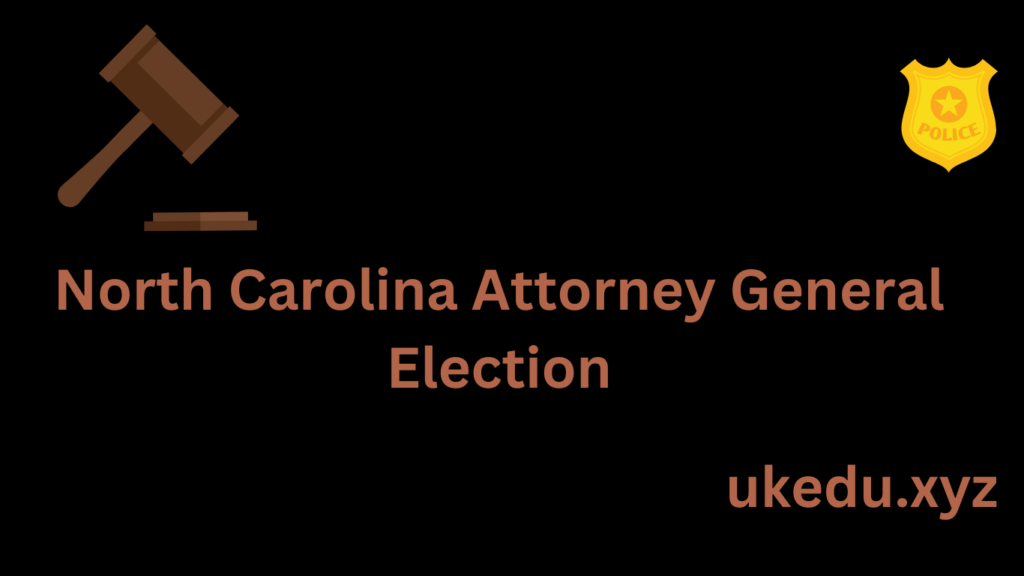Introduction
North Carolina Attorney General Election In the heart of the bustling political landscape of North Carolina lies the pivotal event of the Attorney General election. As citizens exercise their democratic right to choose their legal representative, understanding the nuances of this election becomes paramount. This article serves as a comprehensive guide, delving into the intricacies of the North Carolina Attorney General Election, shedding light on its significance, and unraveling the electoral process.
Historical Context of Attorney General Elections in North Carolina
Evolution of the Role and Responsibilities
The role of the Attorney General in North Carolina has undergone significant evolution over the years. From its inception, the Attorney General has been entrusted with upholding the state’s legal integrity, safeguarding the rights of its citizens, and representing the state’s interests in legal matters. This historical journey reflects the changing dynamics of North Carolina’s legal landscape.
Key Milestones in Past Elections
Throughout history, North Carolina has witnessed pivotal moments in its Attorney General elections. From landmark court cases to shifts in political ideologies, each election cycle has shaped the trajectory of the state’s legal system. Understanding these key milestones provides valuable insights into the state’s legal and political history.
Current Landscape of North Carolina Politics
Overview of the Political Climate in North Carolina
The political landscape of North Carolina is as diverse as its population. With competing ideologies and interests at play, the state’s politics often serve as a microcosm of national debates. Factors such as demographic shifts, urban-rural divides, and socioeconomic disparities influence the dynamics of the Attorney General election.
Influential Factors Shaping the Attorney General Election
Several factors play a pivotal role in shaping the outcome of the Attorney General election. From campaign finance to endorsements from key stakeholders, each element contributes to the overall narrative of the election. Understanding these influential factors provides valuable insights into the strategies employed by candidates.
Role and Responsibilities of the North Carolina Attorney General
Detailed Explanation of the Duties and Powers
The North Carolina Attorney General wields considerable authority in the state’s legal system. From prosecuting criminal cases to providing legal counsel to state agencies, the Attorney General’s responsibilities are vast and multifaceted. Understanding the scope of these duties is essential for voters evaluating candidates’ suitability for the role.
Importance of the Role in the State’s Legal System
The Attorney General serves as the chief legal officer of North Carolina, tasked with upholding the rule of law and defending the state’s interests. As the state’s top law enforcement official, the Attorney General plays a crucial role in shaping legal precedents and ensuring justice for all North Carolinians.
Eligibility Criteria for Attorney General Candidates

Legal Requirements for Candidates Seeking the Position
Candidates vying for the position of North Carolina Attorney General must meet specific legal criteria outlined in state statutes. From residency requirements to professional qualifications, these eligibility criteria serve as the foundation for candidacy. Understanding these legal requirements is essential for both candidates and voters alike.
Qualifications and Experience Necessary for Candidacy
Beyond meeting legal requirements, candidates for Attorney General must possess the necessary qualifications and experience to effectively fulfill the duties of the role. Legal expertise, leadership skills, and a commitment to public service are among the qualities voters often consider when evaluating candidates.
Major Issues and Challenges Facing North Carolina
Analysis of Prominent Legal Issues in the State
North Carolina grapples with a myriad of legal issues that profoundly impact its residents and institutions. From civil rights and criminal justice reform to environmental protection and healthcare access, the state faces complex challenges that require adept legal leadership. Analyzing these issues provides insight into the priorities of Attorney General candidates and the potential impact of their policies.
Challenges That the Next Attorney General May Encounter
The next Attorney General of North Carolina will inherit a diverse set of challenges that demand innovative solutions and decisive action. Navigating legal battles over voting rights, immigration policies, and economic disparities will require strategic leadership and a commitment to upholding the principles of justice and equality. Understanding these challenges is essential for voters as they assess the qualifications of candidates vying for the position.
Candidates in the North Carolina Attorney General Election
Profile of Each Candidate Running for Attorney General
The North Carolina Attorney General election features a diverse array of candidates vying for the opportunity to serve as the state’s chief legal officer. From seasoned legal professionals to political newcomers, each candidate brings a unique background and perspective to the race. Understanding the profiles of these candidates is essential for voters seeking to make informed decisions at the ballot box.
Summary of Their Platforms and Priorities
As candidates crisscross the state, articulating their visions for the future of North Carolina, it becomes imperative to examine their platforms and policy priorities. From criminal justice reform and consumer protection to defending civil liberties and combating corruption, candidates outline their agendas to address the pressing issues facing the state. Analyzing these platforms provides voters with insight into the potential direction of the Attorney General’s office under each candidate’s leadership.
Campaign Strategies and Tactics

Examination of the Campaigning Methods Employed by Candidates
Campaigning in the digital age requires candidates to employ a diverse array of strategies and tactics to reach voters effectively. From traditional media outreach to digital advertising and grassroots organizing, candidates utilize various channels to convey their messages and mobilize supporters. Analyzing these campaigning methods sheds light on the evolving nature of political engagement in North Carolina.
Impact of Campaign Strategies on Voter Engagement
The effectiveness of campaign strategies can significantly influence voter engagement and turnout in the Attorney General election. Candidates’ ability to connect with voters, communicate their platforms, and address key concerns directly impacts their electoral success. Understanding the impact of these strategies provides valuable insights into the dynamics of the election and the factors driving voter participation.
FAQs
What is the role of the Attorney General in North Carolina?
- The Attorney General in North Carolina serves as the state’s chief legal officer, responsible for representing the state in legal matters, providing legal advice to state agencies, and enforcing state laws.
2. How is the Attorney General elected in North Carolina?
- The Attorney General in North Carolina is elected through a statewide election held every four years. Candidates must meet certain eligibility requirements and campaign for the position.
3. What are the eligibility criteria for candidates running for Attorney General in North Carolina?
- To run for Attorney General in North Carolina, candidates must meet specific legal requirements outlined in state statutes, including residency and professional qualifications.
4. How are candidates for Attorney General selected in North Carolina?
- Candidates for Attorney General in North Carolina are typically selected through primary elections within their respective political parties. The winners of the primary elections then proceed to the general election.
5. What are some of the key issues facing North Carolina that the next Attorney General will need to address?
- Some of the key issues facing North Carolina include civil rights, criminal justice reform, environmental protection, healthcare access, and economic disparities.
6. What powers does the Attorney General hold in North Carolina?
- The Attorney General in North Carolina holds significant powers, including the authority to prosecute criminal cases, provide legal opinions to state agencies, and represent the state in legal proceedings.
7. How does the Attorney General’s office impact the daily lives of North Carolinians?
- The Attorney General’s office in North Carolina plays a crucial role in protecting the rights and interests of North Carolinians through its enforcement of state laws, consumer protection efforts, and legal advocacy.
8. What is the significance of endorsements in the Attorney General election?
- Endorsements from prominent individuals and organizations can carry significant weight in the Attorney General election, signaling support for a candidate’s qualifications, values, and policy priorities.
9. How does social media influence the Attorney General election in North Carolina?
- Social media platforms play an increasingly important role in shaping public discourse and political engagement in the Attorney General election, allowing candidates to reach voters directly and mobilize support.
10. What happens after the Attorney General election in North Carolina?
- After the Attorney General election in North Carolina, the winning candidate assumes office and begins their term as the state’s chief legal officer, fulfilling their duties and responsibilities as outlined by law.
Conclusion
The North Carolina Attorney General election stands as a testament to the vitality of democracy and the power of civic engagement. As voters cast their ballots and candidates vie for the opportunity to serve as the state’s chief legal officer, the stakes are high. The role of the Attorney General is not merely administrative; it is a guardian of justice, a protector of rights, and a champion of the rule of law.
Throughout this article, we have explored the intricacies of the Attorney General election, from its historical context to its contemporary significance. We have examined the role and responsibilities of the Attorney General, analyzed the major issues facing North Carolina, and delved into the profiles and platforms of the candidates vying for the position.
